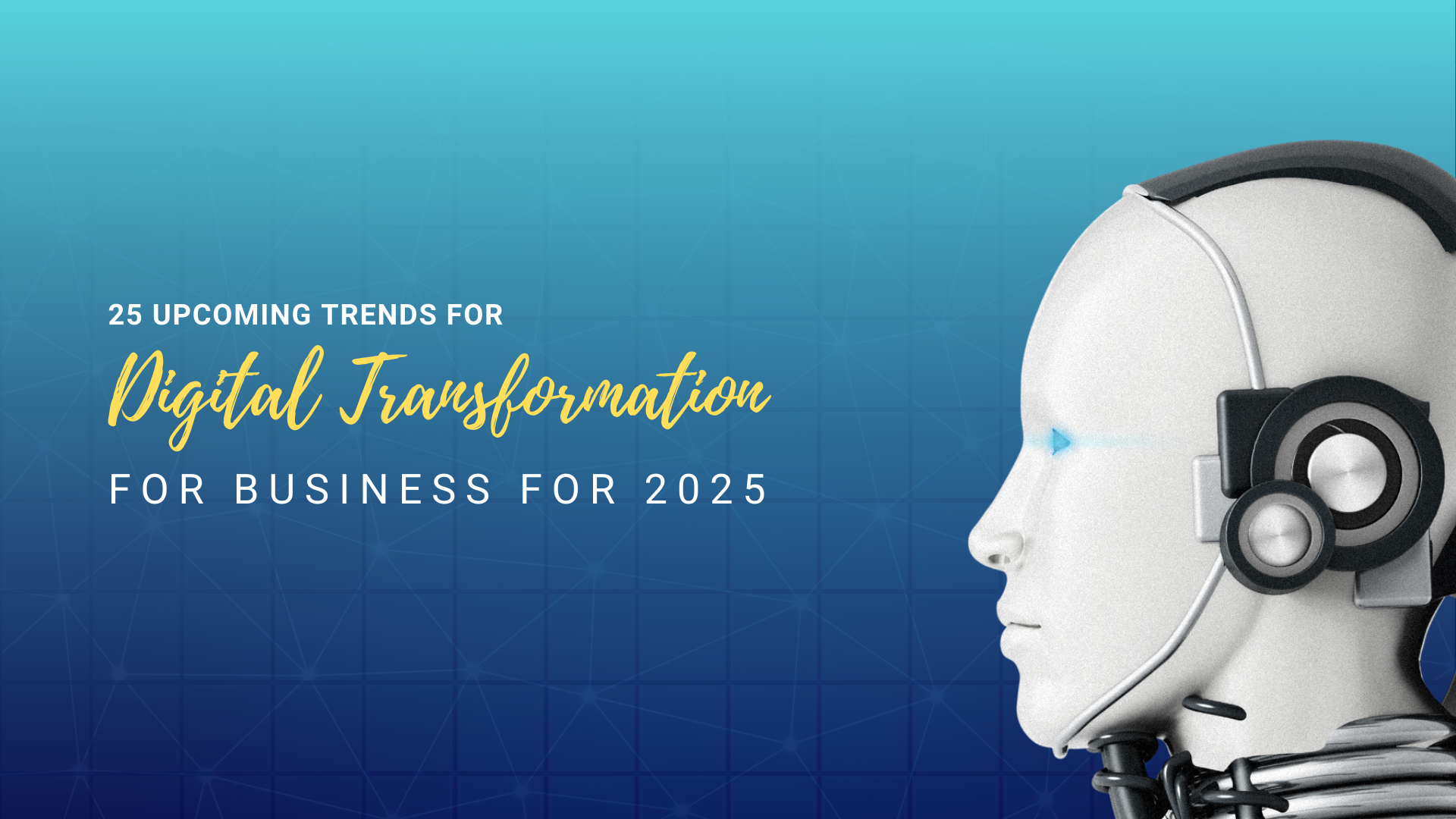Digital transformation continues to be a cornerstone of modern business strategy. As we approach 2025, a wave of new technologies and evolving trends promise to reshape industries. Here’s a comprehensive look at the top 25 trends set to revolutionize business landscapes.
1. AI-Powered Decision Making
Artificial Intelligence (AI) is becoming more sophisticated, enabling businesses to make faster, data-driven decisions. Predictive analytics and machine learning will streamline operations and uncover new growth opportunities.
2. Hyperautomation
Hyperautomation, combining advanced AI, machine learning, and robotic process automation (RPA), will take efficiency to new heights. Businesses will automate end-to-end processes across departments to improve accuracy and reduce costs.
3. Edge Computing
Edge computing minimizes latency by processing data closer to its source. This trend will become essential for industries like manufacturing, healthcare, and retail that rely on real-time data.
4. 5G Connectivity
With the global rollout of 5G networks, businesses can expect ultra-fast connectivity, reduced lag, and enhanced IoT functionality. This will unlock innovations in areas like smart cities and connected vehicles.
5. Blockchain Beyond Cryptocurrency
Blockchain will extend its utility beyond cryptocurrencies into areas like supply chain management, identity verification, and secure transactions. Companies will leverage this technology to ensure transparency and trust.
6. Digital Twins
Digital twin technology allows businesses to create virtual replicas of physical assets or systems. This trend will drive innovation in sectors like construction, manufacturing, and logistics.
7. Metaverse Integration
The metaverse will transcend gaming and entertainment to transform how businesses interact with customers and employees. Virtual reality (VR) and augmented reality (AR) will create immersive experiences for training, collaboration, and marketing.
8. Sustainable Technology
Green tech solutions will dominate, with businesses adopting energy-efficient IT infrastructure and embracing circular economy principles. Cloud providers, for instance, will focus on carbon-neutral data centers.
9. Composable Applications
Composable business models will prioritize modular, customizable software. Companies can quickly adapt to market changes by assembling and reassembling digital capabilities.
10. Zero Trust Security
The rise in cyberattacks will push organizations to adopt zero-trust security models. This approach requires verification at every step to protect sensitive data and systems.
11. Decentralized Finance (DeFi)
DeFi’s blockchain-based approach will revolutionize financial services. Businesses will explore decentralized lending, payments, and insurance to improve efficiency and access.
12. Voice Commerce
Voice assistants will gain prominence in e-commerce, enabling customers to shop using voice commands. Companies will optimize their digital storefronts for voice search to stay competitive.
13. Quantum Computing
Though still in its early stages, quantum computing will begin to address complex problems that traditional computers cannot solve. This will benefit sectors like logistics, pharmaceuticals, and cybersecurity.
14. Augmented Workforce
Wearable technology, AR, and AI-driven tools will empower employees with real-time information and enhance productivity. From fieldwork to remote collaboration, the workforce will become increasingly tech-enabled.
15. Smart Contracts
Blockchain-enabled smart contracts will automate and secure business agreements. This technology will simplify processes in real estate, supply chains, and legal services.
16. IoT Expansion
The Internet of Things (IoT) will connect more devices than ever, from smart appliances to industrial equipment. Businesses will leverage IoT data to optimize operations and enhance customer experiences.
17. Data Democratization
User-friendly analytics tools will empower employees across all levels to make data-informed decisions. This democratization will foster innovation and agility in organizations.
18. Advanced Personalization
AI-driven insights will take personalization to the next level, tailoring products, services, and marketing strategies to individual customer needs and preferences.
19. Cybersecurity Mesh
A flexible, modular approach to cybersecurity will become essential to protect decentralized digital ecosystems. Cybersecurity mesh architecture (CSMA) will ensure better integration and protection across networks.
20. Human-Centric AI
AI will become more human-centric, focusing on ethical considerations and transparency. Businesses will prioritize AI solutions that align with societal values and build customer trust.
21. Extended Reality (XR)
Extended reality, which encompasses AR, VR, and mixed reality (MR), will redefine training, design, and customer engagement strategies. Companies will experiment with XR to stand out in competitive markets.
22. Advanced Predictive Maintenance
AI and IoT will power predictive maintenance strategies, reducing downtime and repair costs for equipment. This trend will be particularly impactful in manufacturing and transportation.
23. Subscription-Based Models
Subscription models will continue to gain traction, offering predictable revenue streams and fostering long-term customer relationships. From software to physical goods, businesses will innovate their offerings to retain customers.
24. Collaborative AI
Businesses will adopt AI systems designed to work alongside humans. Collaborative AI will enhance creativity, problem-solving, and decision-making across industries.
25. Digital Ethics and Inclusion
Companies will prioritize digital ethics, ensuring that technologies are inclusive and accessible. This focus will enhance brand reputation and compliance with evolving regulations.
Preparing for 2025
To thrive in the digital era, businesses must embrace these trends proactively. Success will require strategic investments in technology, workforce upskilling, and a commitment to innovation. By understanding and adapting to these trends, companies can secure a competitive edge and pave the way for a digitally empowered future.



